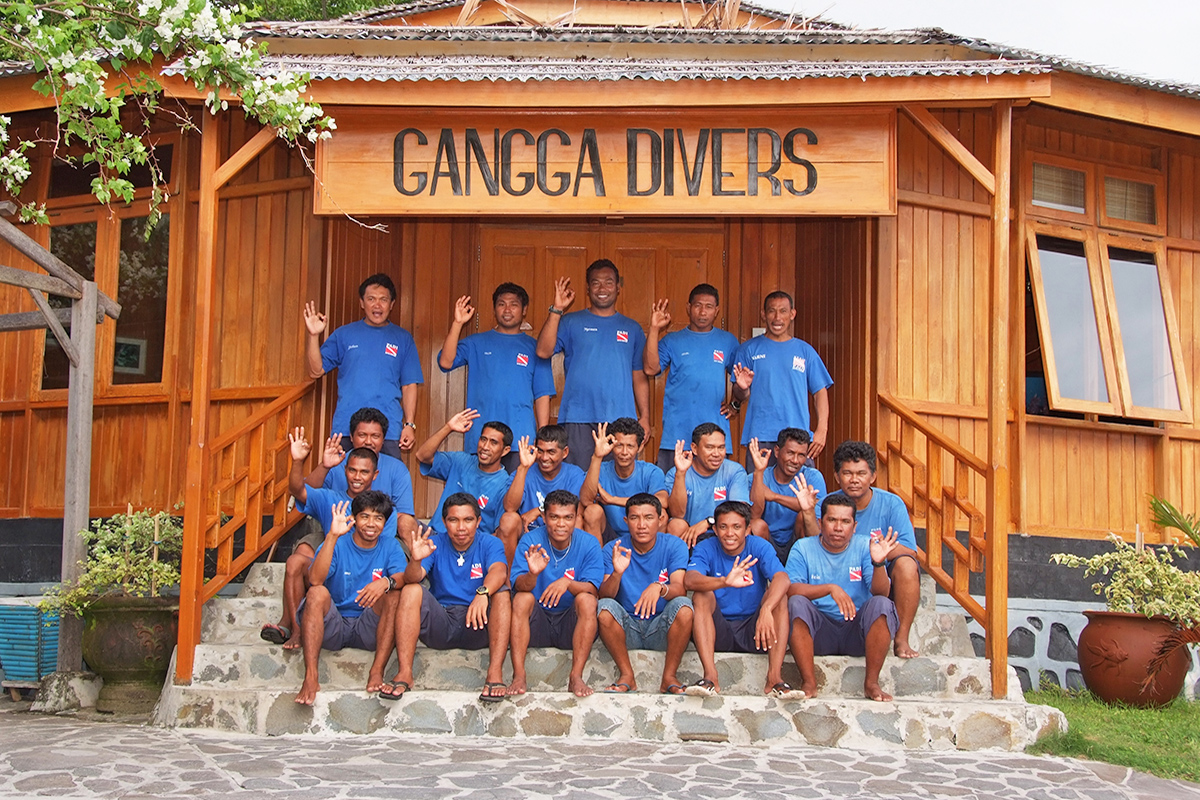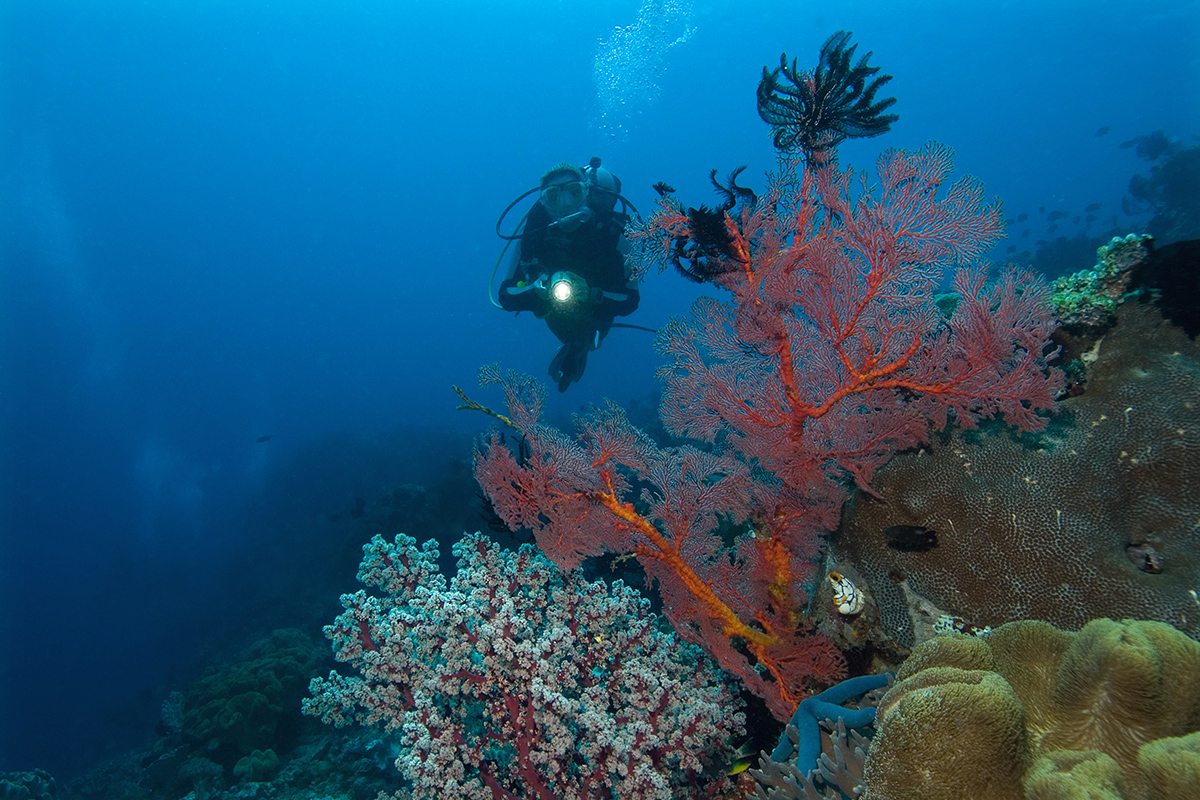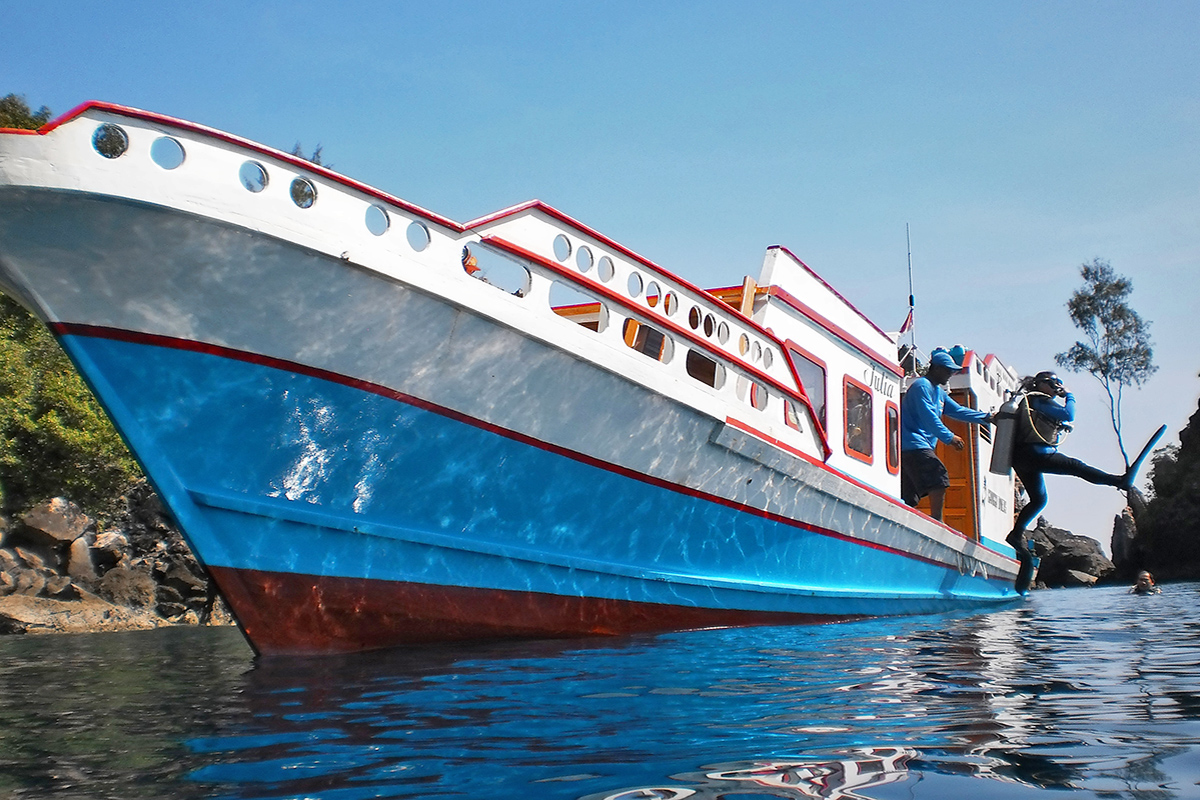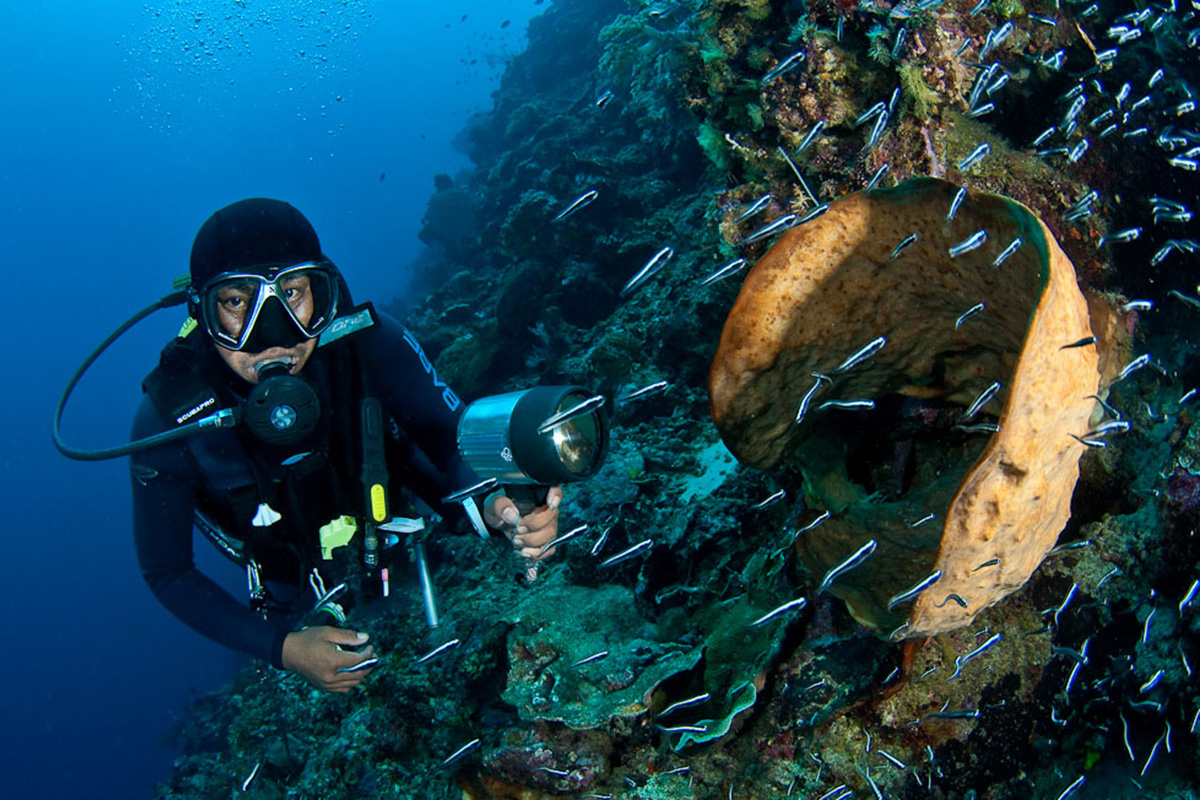8 Tips to be a Responsible Diver
We all want to leave as little impact on the environment as possible. This is especially important when we’re in marine areas that are protected and can be easily damaged by human interaction. When you’re diving mindfulness and awareness of your surroundings is essential, so here are our 8 tips on being a responsible diver.
1. Get the best training possible
You may find in some parts of the world guides will offer to take you diving without proper certification. Dive training is an absolute must no matter what guides tell you. It is dangerous for you and the marine life to be improperly trained.
Gangga Divers at Gangga Island Resort & Spa offer PADI 5* dive training with professional instructors and guides. PADI is the number one dive training in the world and is recognized wherever you go.
2. Use control
This follows on from having the appropriate dive training. You need to learn to control your movements so you can hover above the reef without touching or damaging it. Buoyancy is key when it comes to control, so this means keeping your breathing even and using your BC when necessary.
3. Look, don’t touch!
This point should probably be in the #1 spot but actually follows on nicely from points 1 and 2. You should never touch the coral, animals, or really anything on the reef. This isn’t just because you might break something. There is actually natural bacteria and micro-organisms on human skin that can contaminate the reef and fish. Hard corals often protect themselves with a layer of live tissue that can be damaged or infected by our touch.
4. Leave only bubbles
It may seem like a no-brainer but you should never put anything in the ocean that doesn’t belong there. This includes rubbish obviously but also chemicals you might not realize you’re leaving behind. Most sunscreens contain chemicals that are being found to have devastating effects on coral reefs. If you want to learn more about this there is a great blog post on the website for our sister resort Papua Paradise Eco Resort: How Reef Safe Sunscreens Can Save Marine Life
5. Listen to your instructor or guide
Your Gangga Divers guide will have a plan for each dive. He/she knows the reefs in the area and also will have planned for your skill level. If you drift off, take a different route, or go exploring further than you should, you are more likely to get into situations you may not be able to handle. This in turn means having to hold on to the reef, become out of control, or damaging marine habitat. So stick with your guide and follow their instructions carefully.
6. Make sure your equipment fits
If any of your equipment is loose or hanging when you dive, there is a chance you will damage your surroundings. This includes your wesuit, fins, regulator, pressure gauge, and tanks. If you have your own gear, make sure it all still fits well before you leave for your dive trip. If you need to rent from Gangga Divers, try everything on and don’t settle for less than a perfect fit.
7. Don’t be afraid to speak up
If you see someone doing something that could damage the marine environment you must speak up. It is your responsibility to the reefs to, not only keep yourself in check but others as well. This includes dive instructors and guides, so don’t be shy to call people out if they are throwing rubbish, touching the reef or damaging the environment in any way.
8. Don’t feed the fish
There may be times you want to make the fish come to you. Feeding them is not the way to do that. Fish can quickly become reliant on being fed by humans and this throws the whole food chain out of whack. This is especially harmful if the algae growth gets out of control when it’s not being kept at bay by fish.
These are just 8 small things that you personally can do to make sure you are a responsible diver. No matter where you are in the world you should be aware that you are a guest in the water and you should leave little or no impact on the environment and marine habitats. Do you already do all of these things? Let us know in the comments box below if there are more things you do to ensure you are a responsible diver.





